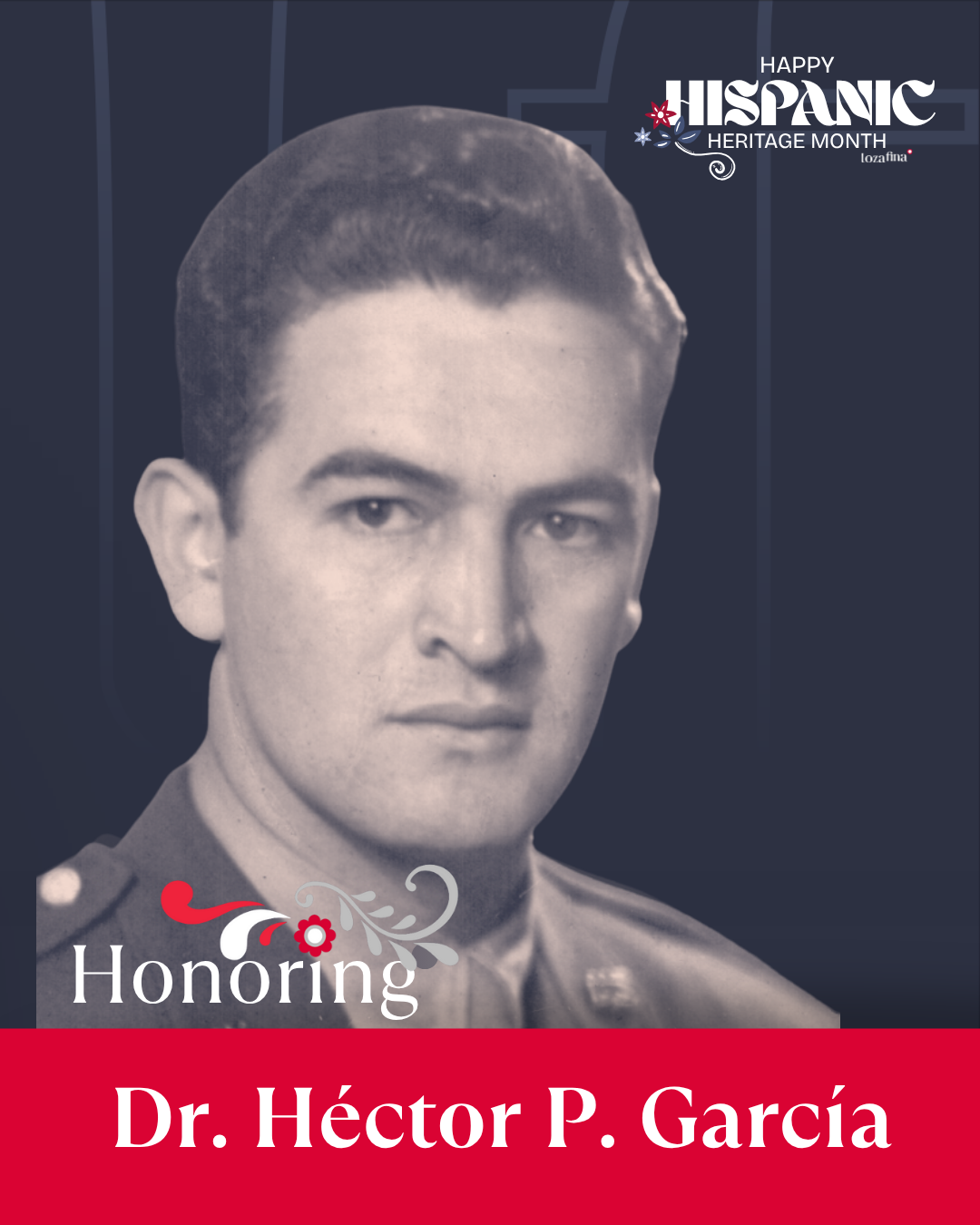Dr. Héctor P. García: Physician, Veteran, and Champion for Justice
Born in Llera, Tamaulipas, Mexico, on January 17, 1914, Héctor Pérez García would become a towering figure in American Latino civil rights. Yet, his journey took him across borders and battlefields to places as far as Omaha. After medical training in Texas, García completed his general internship and surgical internship at St. Joseph’s Hospital, Creighton University, positioning him among the few Mexican-American physicians with direct ties to Nebraska.
During World War II, García served in the U.S. Army (Infantry, Engineers, and Medical Corps), rising to the rank of Major and earning campaign medals in the European Theater. His wartime service exposed him to the discrimination faced by Hispanic veterans as they tried to claim their benefits, experiences that would catalyze his later activism.
In 1948, García founded the American G.I. Forum, beginning with a gathering of 700 Mexican-American veterans in Corpus Christi. The organization’s early mission was straightforward: help Hispanic veterans obtain the benefits they had earned under the G.I. Bill. Over time, it expanded to challenge systemic injustices, such as school segregation, jury exclusion, poll taxes, unequal hospital treatment, and more.
One turning point came with the Longoria Affair (1949). After Private Felix Longoria, a Mexican-American veteran, was refused funeral chapel services in his hometown because of his ethnicity, García and the G.I. Forum mobilized a national outcry. Senator Lyndon B. Johnson intervened, and Longoria was buried with full honors at Arlington National Cemetery. The episode launched García and his organization into the national spotlight.
García’s influence spanned decades: he coordinated the Viva Kennedy/Viva Johnson clubs to mobilize Latino voters in 1960, was named Alternate U.N. Representative in 1967, served on the U.S. Commission on Civil Rights, and advised multiple presidents from Kennedy through Clinton. In 1984, he became the first Mexican-American to be awarded the Presidential Medal of Freedom.
García is often quoted: “Education is our freedom, and freedom is everybody’s business.” He envisioned a Latino civil rights movement grounded in citizenship, dignity, and full American participation.
Though his direct work in Omaha was limited, his residency at Creighton and his medical training linked him into Nebraska’s tapestry of Latino history, proof that leaders of national consequence sometimes pass quietly through local halls.
His passing on July 26, 1996, closed a life of service, but his legacy lives on: in hundreds of G.I. Forum chapters, in battles won for civil justice, and in a nation more just because he demanded it.
Do you know someone whose story should be told — a mentor, educator, entrepreneur, veteran, artist, or advocate who has made a lasting difference in the Latino community? Please share their name and a little about their journey with us.
📩 Email: office@lozafina.com



